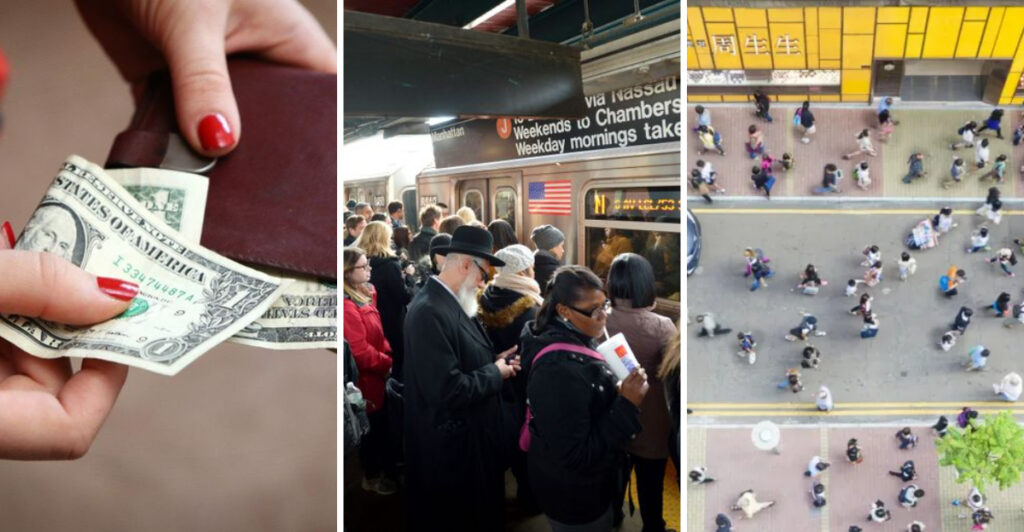Tourists visiting the United States often bring their own customs and behaviors, which can sometimes clash with local culture. We asked Americans to share the things tourists do that they find offensive, and here are 16 responses that stood out.
1. Loud Talking in Public Places

Stepping into a quiet café, visitors often don’t notice the volume of their voices. Americans appreciate a peaceful atmosphere where conversations are muted. Loud talking can disturb the ambiance, leading to irritated glances from locals. Volume control is key, as it’s seen as a sign of respect for shared spaces.
Imagine sitting in a serene park with birds chirping, only to be interrupted by boisterous chatter. Such scenes are common in eateries, parks, and public transport. Tourists are encouraged to match their tone with the environment, allowing everyone to enjoy the moment.
2. Ignoring Personal Space
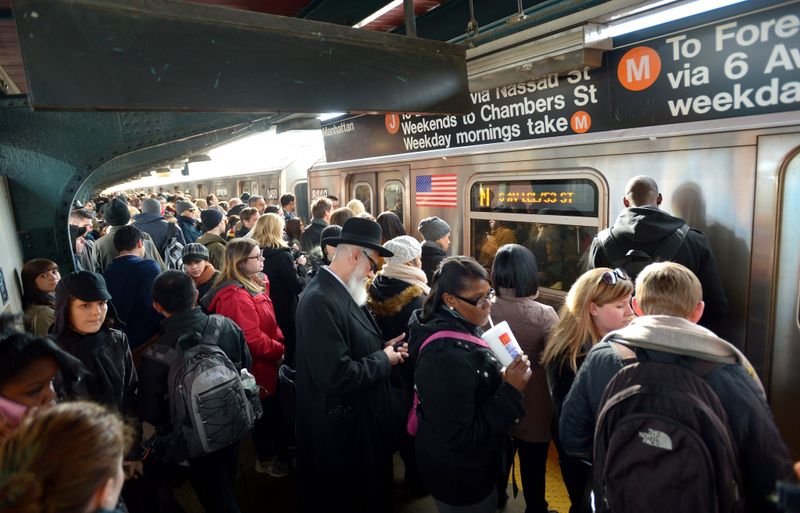
Personal space is a cherished concept in the U.S., and tourists might unknowingly breach it. In crowded settings, like subway cars or queues, standing too close can make locals uneasy. Americans tend to prefer a small buffer zone when interacting.
Accidentally brushing against someone or standing shoulder-to-shoulder can feel invasive. Awareness of one’s surroundings helps maintain comfort for everyone involved. This cultural norm might not be common worldwide, but it’s deeply ingrained in American society. Respecting these boundaries fosters a more harmonious travel experience.
3. Disrespecting Local Etiquette
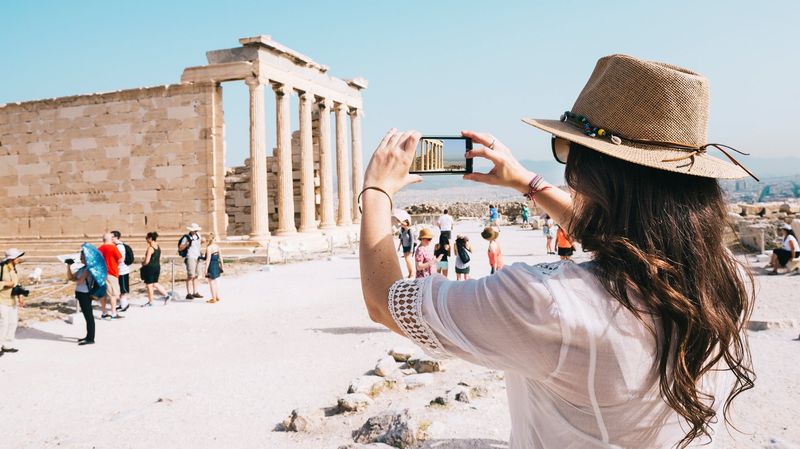
Every region has its unspoken rules, and some tourists overlook them. From ignoring signs to dismissing local customs, such actions can be perceived as disrespectful. Whether it’s entering restricted areas or not adhering to dress codes, these breaches stand out.
Witnessing a tourist ignore ‘Do Not Enter’ signs can irk locals who value cultural and historical preservation. Respect for local etiquette isn’t just polite; it’s a way of acknowledging a community’s values and heritage. Tourists are urged to observe and follow these guidelines, enriching their travel experience.
4. Not Tipping Service Workers

Tipping is a customary practice in the U.S., and failure to do so might be seen as discourteous. Many service workers depend on tips as a significant part of their income. Tourists unfamiliar with this practice might leave without tipping, leading to misunderstandings.
In restaurants, bars, and even taxis, a gratuity is generally expected. Locals might view the absence of a tip as a disregard for the efforts of service staff. Educating oneself about tipping customs can prevent awkward situations and show appreciation for services received.
5. Speaking Only in Their Native Language

Language barriers can be challenging, but tourists insisting on their native tongue may offend locals. While many Americans are accommodating, making no attempt to speak English can lead to frustration. Even simple greetings in English can bridge cultural gaps.
Tourists are encouraged to learn basic phrases as a gesture of goodwill. This effort often leads to warmer interactions and a more welcoming response. It’s not about fluency but about showing respect for the local language and culture, enhancing the overall travel experience.
6. Taking Photos Without Permission

Photography is a common way to capture memories, but snapping pictures of people without consent can offend. In tourist hotspots, locals might find it intrusive when photographed unexpectedly. Respecting privacy is crucial, especially in sensitive situations.
Asking permission before taking photos can lead to more genuine interactions. It demonstrates respect for personal boundaries and acknowledges the autonomy of individuals. Tourists should be mindful of cultural sensitivities and prioritize consent in their photographic pursuits.
7. Comparing Everything to Back Home
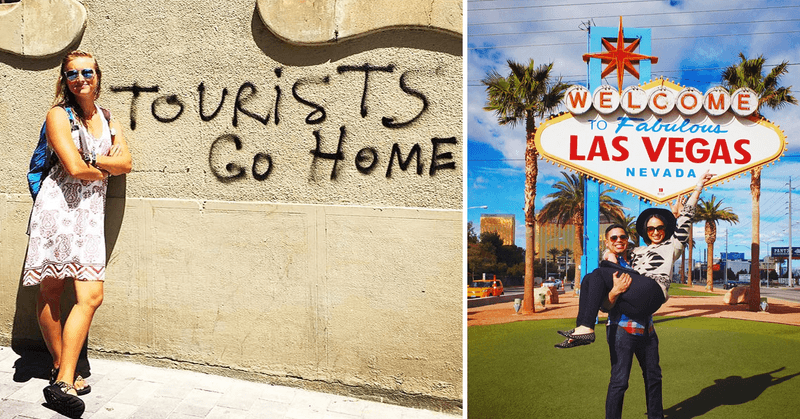
Traveling is about embracing new experiences, yet some tourists continuously compare them to what they know. This habit can come across as dismissive or critical of the host nation. Locals may find such comparisons tiring, especially when their culture is belittled.
Americans value enthusiasm for their unique offerings, whether it’s cuisine, landmarks, or traditions. Open-mindedness enhances travel, allowing visitors to fully appreciate the nuances of each destination. Encouragement is given to focus on the differences and celebrate them, rather than constantly drawing parallels to what’s familiar.
8. Disregarding Environmental Concerns

Environmental preservation is a priority for many Americans, and tourists who ignore this can offend locals. Littering in parks or wasting resources reflects poorly on visitors. Such behaviors go against local efforts to protect natural beauty.
Witnessing a tourist discard trash carelessly can be disheartening for those who value ecological integrity. Tourists are encouraged to follow ‘Leave No Trace’ principles, ensuring their adventures don’t harm the environment. Respect for nature is a shared responsibility, vital for the enjoyment of future generations.
9. Assuming Everyone Knows Their Culture

While cultural pride is understandable, assuming everyone is familiar with it can be offensive. Tourists sometimes express surprise or annoyance when their customs aren’t recognized, which can come across as arrogant.
Americans appreciate cultural exchange, but it’s important to approach it with humility. Sharing customs should be a mutual learning experience. Acknowledging cultural differences fosters understanding and respect. Tourists can enrich their journey by being open to new perspectives and adapting to local contexts.
10. Being Overly Demanding
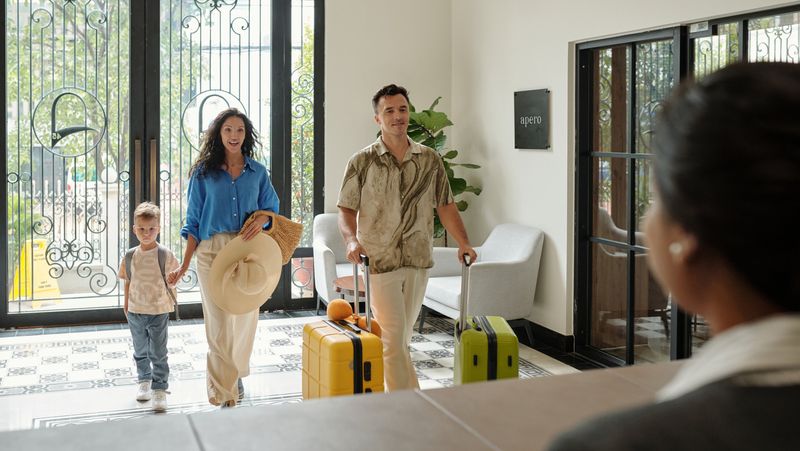
Traveling can be stressful, but tourists demanding special treatment can upset locals. Patience and politeness are valued traits in customer interactions. Overly demanding behavior can strain hospitality workers and lead to negative impressions.
Americans value courteous exchanges, especially in service industries. Tourists are encouraged to communicate needs respectfully, understanding that not every request can be fulfilled immediately. This approach fosters positive relations and smoother experiences, allowing for more enjoyable travel adventures.
11. Dressing Inappropriately for the Occasion

Clothing choices can unintentionally send the wrong message. Tourists showing up in casual beach attire for formal settings might offend locals. Dress codes exist for a reason, often reflecting cultural norms or the ambiance of a venue.
While comfort is important, understanding the context is crucial when choosing attire. Adhering to dress standards can enhance the experience for all involved, showing respect for local customs. Tourists are advised to research dress expectations to avoid awkward situations and ensure their presence is welcomed.
12. Blocking Sidewalks or Pathways

Crowded sidewalks are a part of city life, and tourists inadvertently blocking them can cause frustration. Group gatherings on narrow paths hinder the flow of foot traffic, inconveniencing locals on their daily commutes.
Awareness of one’s surroundings is key to avoiding such situations. Tourists should strive to keep pathways clear, especially in bustling urban areas. This consideration helps maintain a harmonious environment, allowing everyone to move freely and comfortably through shared spaces.
13. Haggling in Fixed-Price Stores

Haggling might be a norm in some cultures, but in the U.S., fixed-price stores aren’t the place for it. Tourists trying to negotiate prices in department stores or boutiques can confuse and annoy locals. Pricing is generally non-negotiable in many American retail settings.
Understanding the shopping culture helps prevent awkward encounters and ensures smooth transactions. Tourists are encouraged to embrace this aspect of American retail, respecting the established norms and enjoying the shopping experience as intended.
14. Failing to Queue Properly

Queuing is a fundamental practice in American culture, and tourists who skip the line can be seen as inconsiderate. Cutting in line disrupts order and fairness, leading to frustration among those waiting patiently.
Whether at theme parks or coffee shops, respecting the queue is essential. Tourists are urged to observe and follow the established order, ensuring a fair experience for everyone. This simple act of patience and respect is appreciated by locals and contributes to a positive atmosphere.
15. Overindulging in Alcohol

Enjoying a few drinks is common, but overindulgence can lead to negative perceptions. Tourists who drink excessively in public places might offend locals who value moderation. Such behavior can disrupt the social environment and lead to unwanted attention.
Moderation is encouraged, ensuring that social gatherings remain enjoyable for all. Awareness of personal limits helps maintain dignity and fosters positive interactions with locals. Tourists are advised to embrace responsible drinking habits, contributing to a respectful and pleasant ambiance.
16. Flouting Smoking Regulations

Smoking restrictions are strictly enforced in many parts of the U.S., and tourists flouting these rules can offend. Ignoring designated smoking areas shows disregard for local health standards and the comfort of others.
Tourists should be aware of smoking policies and adhere to them without exception. Respecting these regulations protects public health and ensures a comfortable environment for everyone. Awareness and compliance with local rules enhance the travel experience and reflect well on visitors.

